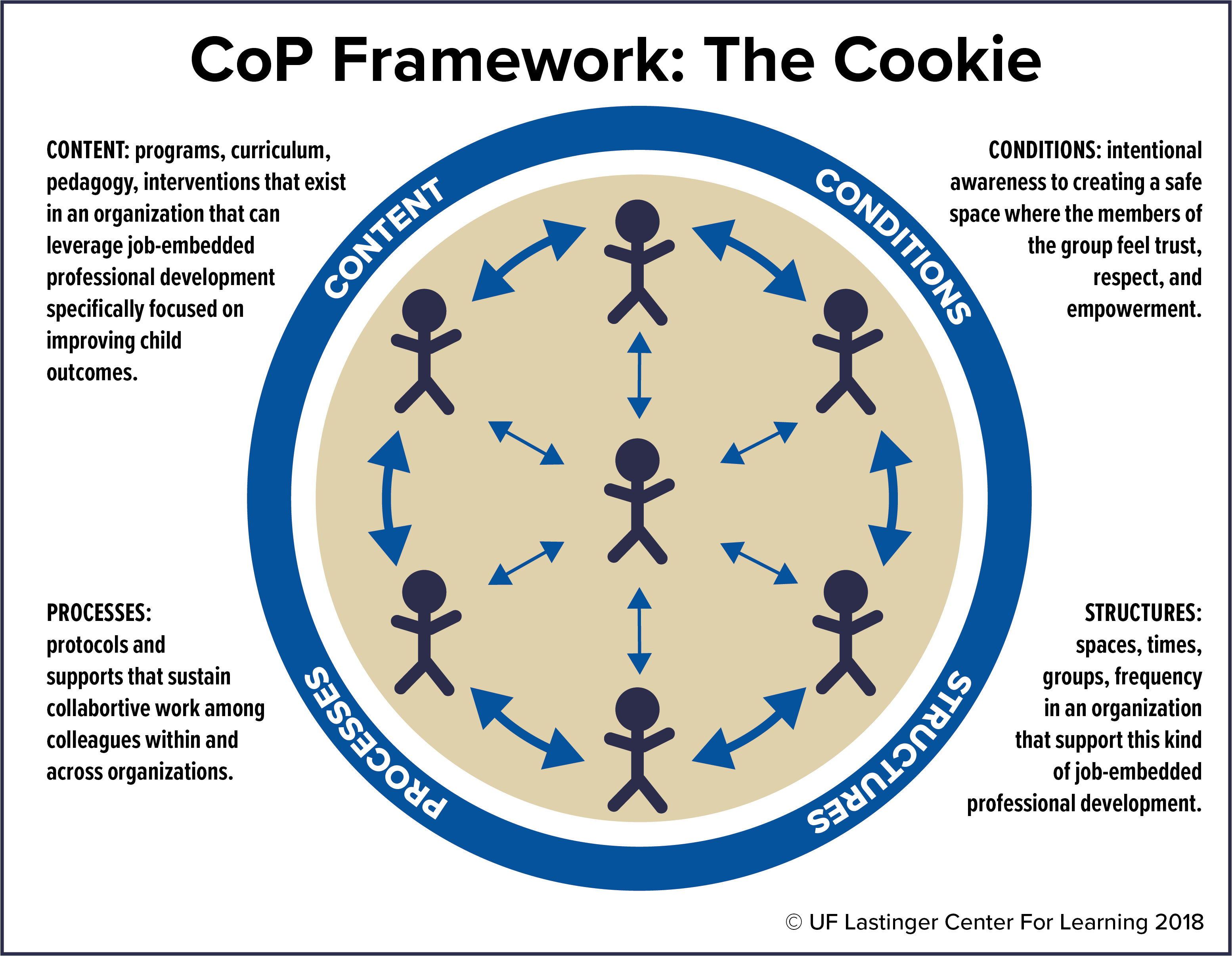Lastinger Center Senior Manager of Leadership and Early Learning Partnerships Raquel Diaz, Ed.D, Director Phil Poekert, Ph.D., and collaborator Pedro R. Bermudez share a research-based framework for communities of practice (CoP) that consists of four key elements: content, conditions, processes, and structures, and how those elements contribute to educator success.
Abstract
Communities of Practice (CoP) have the potential to transform the workplace into learning organisations that prioritise each and every child’s learning and foster collective responsibility, encouraging teachers to see themselves as change agents beyond their classrooms. Previous manifestations of collaborative teaming approaches have met with mixed success for reasons explored within this article. Still, these kinds of work spaces, when sustained over time, can transform the organisational culture of a school. In this article, we share a research-based framework designed to cultivate truly collaborative workplaces. This Community of Practice (CoP) Cookie framework is a major focus at the University of Florida Lastinger Center for Learning, an organisation dedicated to creating effective education systems for teachers and students. The framework consists of four key elements: content, conditions, processes, and structures. We have implemented this framework repeatedly, honing our approach and contributing to educators’ success. At the end of the paper, a case study illustrates the approach in the hopes that other educators can learn from the lessons we have learned.
Citation
Diaz, R., Poekert, P., Bermudez, P. (2022). ‘The Cookie’: a recipe for effective collaboration through communities of practice. Taylor and Francis.

